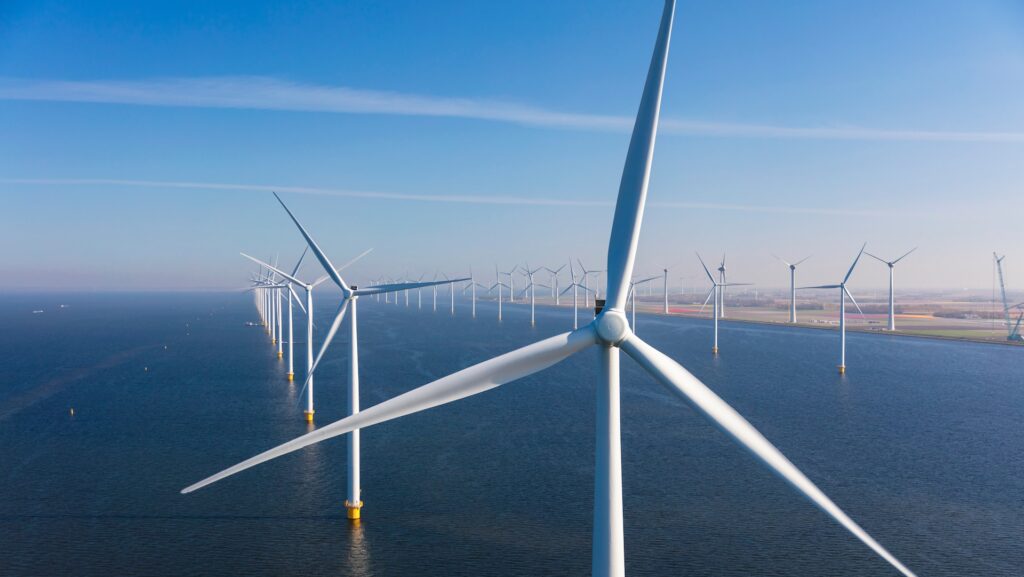Offshore wind is a renewable source of electricity that does not produce carbon emissions. Though less robust than that of other countries, the U.S. offshore wind industry is burgeoning. Most projects are sited more than 10 miles off the Atlantic coast to capture fast and reliable wind speeds. The Great Lakes are vast freshwater inland seas that also have high wind energy potential, but currently they have no operational offshore wind projects. The Icebreaker Wind pilot project in Lake Erie, off the coast of Cleveland, Ohio, proceeded as far as acquiring a lakebed lease before the developer announced an indefinite pause in December 2023.
In the oceans, the federal government has jurisdiction; the federal Bureau of Ocean Energy Management (BOEM) leases the seabed for offshore wind projects. In the Great Lakes, however, states have jurisdiction over the lakebed as trustees of that public trust resource. Each state has its own process for lakebed leasing, and many are piecemeal in the offshore wind context as they do not expressly contemplate offshore wind energy development. The lack of legal infrastructure impedes decision-making that can effectively carry out state public trust duties to balance and protect the many public rights in using the Great Lakes. The regulatory uncertainty also deters the industry. We argue there is a need for laws that promote a net positive framework for offshore wind. Through legal design, government should go beyond the typical environmental law framework of avoid, reduce, and mitigate environmental harm; instead, government should select offshore wind projects based on how far they advance the triple bottom line with environmental, social, and financial benefits.
This law review article:
- Provides an original review of all federal offshore wind leases issued by BOEM from 2010 through August 2023, to highlight the price terms and high bonuses paid to acquire the leases;
- Examines uses of non-price criteria—criteria that provide net-positive benefits to the environment and society—in other regions: the Netherlands in Europe, and Maryland in the U.S.;
- Assesses states’ public trust duties, explores different models for the use of revenues generated from leasing public trust resources, and applies those examples to the Great Lakes context; and
- Recommends regional collaboration, renewable energy goal setting, and price and non-price criteria that Great Lakes states should prioritize if they pursue this renewable energy source.
Read the research:
Andrian Lee, Melissa K. Scanlan & Cora L. Sutherland, Great Lakes Offshore Wind: Creating a Legal Framework for Net Positive Environmental, Social, and Financial Benefits, 5.2 Notre Dame Journal on Emerging Technologies 102 (2024).
